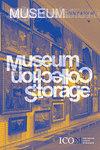Southeast Asian New Immigrant-Themed Contemporary Art as an Approach to Anti-Authoritarian Practices at the Chiang Kai-shek Memorial Hall in Taiwan
IF 0.4
4区 艺术学
0 ART
引用次数: 0
Abstract
Abstract This article examines the exhibition Family Memo-Island of Memory and Migration: Southeast Asia New Immigrant-Themed Contemporary Art (11 May–26 August 2018) at the Chiang Kai-shek Memorial Hall in Taipei, Taiwan. As part of the institution’s transnational justice exhibition, Family Memo was the first and only exhibition to feature South East Asian culture and issues of immigration—especially migrant workers and marriage migrants. This topic created a veiled dialogue with objects that represent Chiang’s authoritarian regime and Taiwan’s days of White Terror, as many Taiwanese see Chiang’s Nationalist Party as a settler/immigrant regime from China to Taiwan. I applied discourse analysis when treating the ‘exhibitionary complex’ (Bennett 1995) as text and analysed the narratives with elements of exhibited objects, written descriptions, and audio text. Data sources include museum annual reports, website information, newsletters, news reports, official publications, museum statements, and interviews with the curator and participating artists. Through literature reviews and interviews with museum staff, curators and several participating artists, I demonstrate how the efforts of the independent curator and artists opened up a variety of narratives of Taiwan, despite the nature of the Memorial Hall’s relationship to authoritarian history. In so doing, the Memorial Hall not only reads the concept of migration in a positive way in a time when labour migrants and marriage migrants are viewed negatively but also unveils its potential in providing a different approach to discuss human rights and anti-authoritarian practices and shared experiences and goals.台湾蒋介石纪念馆东南亚新移民当代艺术反权威实践
摘要本文考察了2018年5月11日至8月26日在台湾台北中正纪念堂举办的“家庭备忘录-记忆与迁移之岛:东南亚新移民主题当代艺术”展览。作为该机构跨国司法展览的一部分,家庭备忘录是第一个也是唯一一个以东南亚文化和移民问题为主题的展览,特别是移民工人和婚姻移民。这个话题与代表蒋介石独裁政权和台湾白色恐怖时代的物品进行了一场含蓄的对话,因为许多台湾人认为蒋介石的国民党是一个从中国到台湾的定居者/移民政权。在将“展览情结”(Bennett 1995)视为文本时,我运用了话语分析,并以展出物品、书面描述和音频文本为元素分析了叙事。数据来源包括博物馆年度报告、网站信息、时事通讯、新闻报道、官方出版物、博物馆声明以及对策展人和参展艺术家的采访。通过文献综述和对博物馆工作人员、策展人和几位参与的艺术家的采访,我展示了独立策展人和艺术家的努力如何打开了台湾的各种叙事,尽管纪念馆与威权历史的关系本质。通过这样做,纪念馆不仅在劳工移徙者和婚姻移徙者被消极看待的时代以积极的方式解读移徙概念,而且还揭示了它在提供讨论人权和反专制做法以及共同经验和目标的不同方法方面的潜力。
本文章由计算机程序翻译,如有差异,请以英文原文为准。
求助全文
约1分钟内获得全文
求助全文
来源期刊

MUSEUM INTERNATIONAL
ART-
CiteScore
0.60
自引率
0.00%
发文量
0
期刊介绍:
In its new revised form Museum International is a forum for intellectually rigorous discussion of the ethics and practices of museums and heritage organizations. The journal aims to foster dialogue between research in the social sciences and political decision-making in a changing cultural environment. International in scope and cross-disciplinary in approach Museum International brings social-scientific information and methodology to debates around museums and heritage, and offers recommendations on national and international cultural policies.
 求助内容:
求助内容: 应助结果提醒方式:
应助结果提醒方式:


